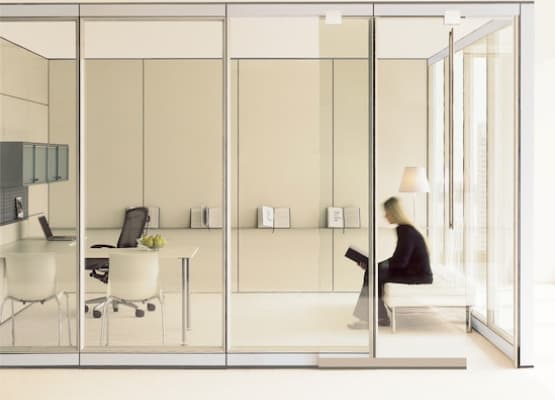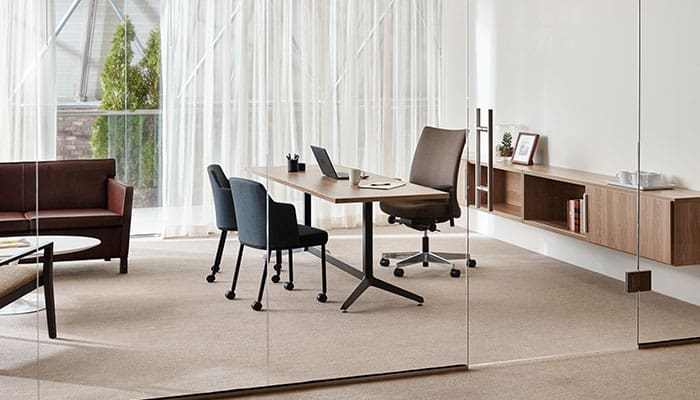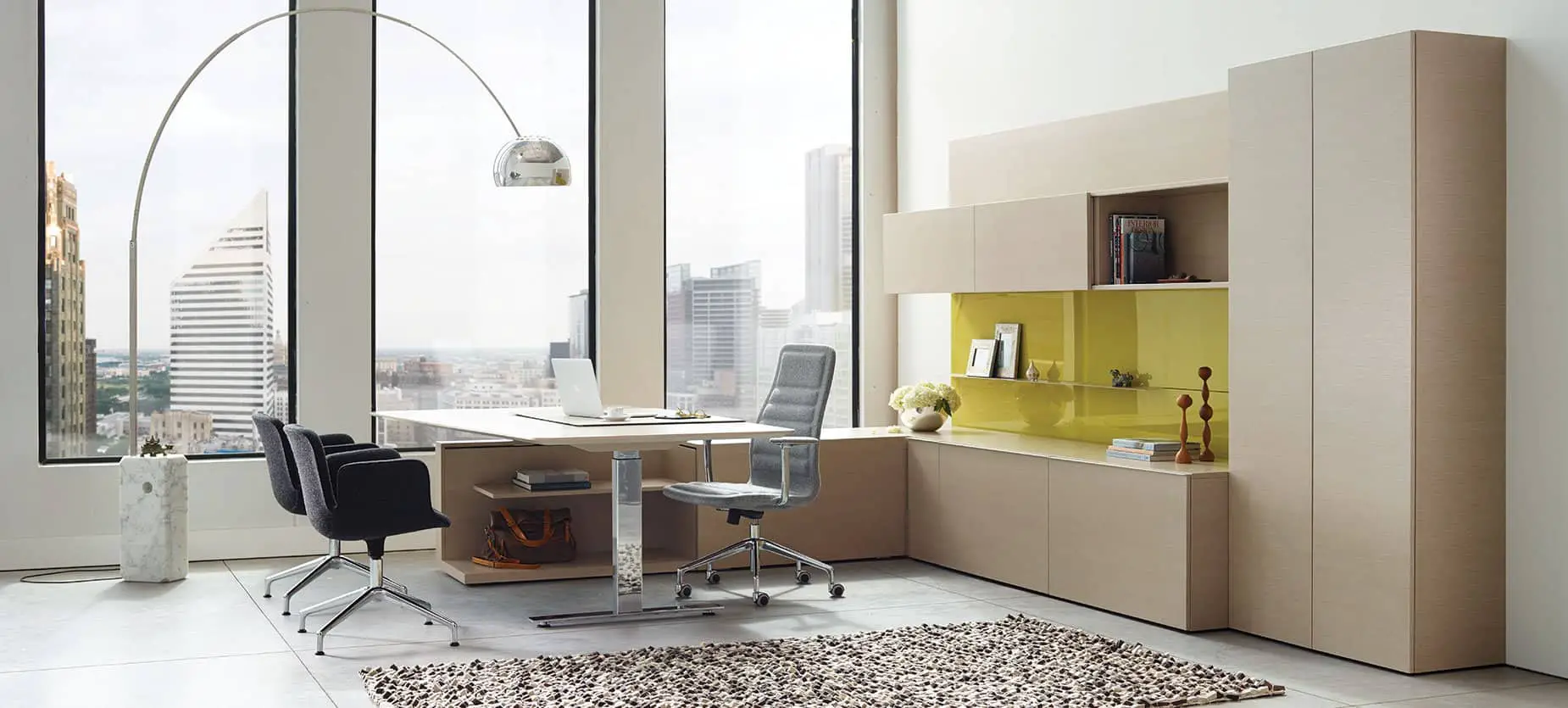Open-office spaces or private offices? That has been the constant debate of companies. Good thing, I have experienced both scenarios.
So, why I need a private office? It boils down to three aspects—privacy, relaxation, and freedom. Privacy is for when we have work which needs some confidentiality. It is also relaxing since it is quieter compared to being in a shared workplace. Lastly, we have our own freedom. We are free to proceed with our tasks without worrying that we’re disturbing other people.
Seven Reasons Why You Should Have Your Own Office
With the enthusiasm of someone who is new to having a private office, let me tell you why you should have your own office.
1. You do not have to lower your voice when having video calls. In this digital world, video calls are now a must when it comes to collaboration. It is even a more apparent setup in international companies. If you are in a shared working area, there is a strong chance that you will disturb other when doing video calls . With an office? Not at all.
. With an office? Not at all.
2. You can rest without thinking of others. Yes, there may be a couch in some of the meeting rooms or a sofa in the reception hall. However, it might be hard to lie down or sleep in these areas while you are on break since many people are watching you. If you have an office, you can snore away without bothering anyone.
3. You can decorate your own office. Decorating your office is helpful since your work environment is a big factor in your productivity. Since you know which kinds of color to feast your eyes on and what kind of room setup to feel relaxed, you can now easily boost your work productivity.
4. There are fewer distractions in private offices. When you are in an open-office setting, you might always be bothered by people talking, individuals passing by your desk, and co-workers having a call. These kinds of distractions usually lower your concentration, hence decreasing your productivity as well.
5. You can also have a mini-stash now! Having a mini-stash such as post-its, staplers, and even a mini-fridge will lessen your hassle if you need anything. Everything is just within your reach. You also do not have to fret over these things getting lost since you are not in a common area anymore.
6. You can have your small meetings in your private office. If you do not have your office, you have to go through the hassle of reserving a room and bringing all of the materials you need for your presentation. Once you have your own office, you do not have to worry about this since everything will be readily available inside it.
7. It feels like home. This one is true. Your office is your space, and you get complete control of the way it will function. Feeling comfortable at work is important in boosting your productivity. In your private office, you will feel comfortable as if you were home.
Why the Open-Office Setting is a Bust

Let’s be honest. The concept of an open-office setting sounds exciting. It is a refreshing concept since it is so far from the traditional offices we often see. However, can they enhance the working environment? I don’t think so.
Having an open-office setting makes our work slower. You get distracted a bunch of times due to the noise of other people. In fact, according to one of the studies of the University of California, Irvine , employees which are in cubicles are 29 percent more exposed to interruptions than when in a private office. In the same research, these interrupted employees increased their rate of exhaustion by nine percent.
, employees which are in cubicles are 29 percent more exposed to interruptions than when in a private office. In the same research, these interrupted employees increased their rate of exhaustion by nine percent.
Some people argue that you can wear your earphones and blast your music if you do not want to hear the noise caused by the shared area. But in reality, not all individuals can work with songs ringing in their ears. It is just additional clutter in the head!
Another reason why it is not good to invest in an open-office setting is that it only promotes casual interactions, not long-term relationships. People will be more engaged to have long and personal conversations with other coworkers when they know that they are in a private setting. This practice improves work and personal relationships with others, hence making it easy to collaborate and interact with them.
“There’s some evidence that removing physical barriers and bringing people closer to one another does promote casual interactions. But there’s a roughly equal amount of evidence that because open spaces reduce privacy, they don’t foster informal exchanges and may actually inhibit them,” said Anne-Laure Fayard and John Weeks
of Harvard Business Review. “Some studies show that employees in open-plan spaces, knowing that they may be overheard or interrupted, have shorter and more-superficial discussions than they otherwise would.”
10 Tips for Designing Your Own Private Office

Designing your private space depending on your taste and functionality is essential. Tailor-fitting your workspace to your personality can increase your work productivity tenfold. Here are some words of advice I can give you on how you can improve your private working area.
1. Maximize the Space
Take advantage of the size of your office. However, make sure that balance out the spaces and clutter to avoid a scene of chaos. One technique which can help fit all of your office junk is through the use of the vertical space. You can have tall steel cabinets with some plant designs on top so that your stuff won’t take too much space.
2. Support Mobile Workers
Now that almost all jobs involve digital work, it is important to invest in portable technological devices such as laptops, mobile phones, desktops. These will be helpful for more efficient working sessions. To support these digital devices, it is a must to equip your office with enough floor power, data access, monitor arms, and ergonomic keyboard supports .
.
3. Divide Your Room
There should be a clear division between areas for private work and collaboration work. Hence, it is essential to have a separation of zones. The private zone will mostly include your personal items, important documents, and own technological devices. On the other hand, the collaboration zone may have a couch for meeting spaces, some magazines and books to look at, and some electrical outlets to provide comfort to the guest.
To provide a clear demarcation of these two zones, your personal work table can serve as the barrier so that your guests will know the line.
4. Invest in Proper Lighting
The best lighting an office can have is the natural sunlight which comes from the window. However, if you do not have this privilege, make sure to contact a graphic designer so he or she can work on the lighting colors of your office. If you choose the wrong lighting, it will give you eye strain and headaches.
5. Buy a Comfortable Chair
Believe it or not, there is a strong chance that you might spend more time on your work chair than your own bed at home. If you are working this long, it is crucial to have a comfortable chair. It does not necessarily have to be stylish and big. Just make sure that it fits the form of your back and whole body. Do not underestimate the role of a good chair.
6. Get a Functional Desk
Small is cute and saves a lot of space, but it is barely functional. It is essential to invest in this kind of desk since you will store many non-digital paperwork and records, place your office materials, and conduct your daily business. Remember: it does not have to be new and super fancy. Just make sure that they come with many compartments and have a large area as a workspace.
7. Place a Few Pieces of Inspiration
Do you want to convey a little bit of swag and personality inside your office? You can do that by placing a few pieces of inspirational things there. You can start with some of your pictures with family, friends, lover, and co-workers. You can even add some of your certificates and other recognitions, such as newspaper article cutouts about your achievements, to boost your work confidence and motivate you to complete your tasks.
If you just want to laugh, maybe you can add funny memorabilia like a bobblehead character of you on your table.
of you on your table.
8. Create a Workspace That Is Environment-Friendly
You may also want to be an advocate for the environment. Letting your customers, partners, and co-workers know that you are conscious of the effects of your actions on nature can further boost their trust in you. At the same time, this can even lower your cost in your office spending. Here are some of the practices you can try engaging in:
– Place recycling bins in convenient locations. Make sure that you have several containers so you can properly segregate all of your office trash.
– Do not throw the documents you don’t need to use anymore (unless they are confidential of course!). You can use the back pages of these files just in case you need some scratch paper or you need to print some draft documents. In addition, you may also cut these papers to small pieces and staple them together to create memo pads.
– Use energy-efficient light bulbs as your main lighting materials.
– Use toner and ink cartridge refill kits when your printer loses its ink. These will not only save you some bucks but will also cut down waste. If you see that your cartridges are non-refillable, make sure to make a call to your manufacturer. Most of these companies have cartridge programs for recycling.
9. Install a Telephone
Although we are in the era of emails and social media, installing a dedicated telephone line rather than relying on cell may help you with your business.
10. Improve the Feng Shui of the Workplace
Some people may see this is as a bit superstitious. However, there is nothing wrong with trying, right? You can add some crystals, plants, and mirrors on a strategic place to improve the flow of positive energy in the room. If you want to take this advice seriously, you can even seek the assistance of Feng Shui expert!
expert!
Read also OSW article: How to Design a Feng2 Shui Office
The Best of Both Worlds
We need to keep in mind that what works for one will not necessarily work for others as well. Maybe some companies operate better in an open-office setting while others are more productive in having private offices. The choice will depend on the culture of the company and the nature of the jobs in it.
What companies overlook, however, is how their offices can adopt both styles.
“The goal of improving productivity is giving team members an environment in which they can accomplish as much as possible,” Bill Himmelstein , CEO of commercial real estate brokerage Tenant Advisory Group, explains. “Sometimes it’s more collaborative in nature, and other times it is [finding] some quiet space and [staying] heads down for a while. Either way, an office space should be adaptable, support the company’s culture, and serve as a place where employees and partners alike want to spend time.”
, CEO of commercial real estate brokerage Tenant Advisory Group, explains. “Sometimes it’s more collaborative in nature, and other times it is [finding] some quiet space and [staying] heads down for a while. Either way, an office space should be adaptable, support the company’s culture, and serve as a place where employees and partners alike want to spend time.”
He also mentioned that it is important to ask the feedback and opinions of the employees in this matter. It is critical that everyone should have a say to avoid future complications in the workplace. You can start by asking them the following questions:
– What is the level of privacy that you need?
– What kind of environment do you prefer?
– Does the nature of your job require frequent phone and video calls, or does it require immense focus?
– Are you always working on collaborative and group projects which necessitate regular communication?
– What kind of setup do you think will mirror our company culture?
– What are the advantages and disadvantages of our current office setup?
Once the company has answered these questions, you can start finding the balance between the two office styles. If you opt to have more private offices, ensure that there are still company initiatives which will improve their collaboration and maintain the positive culture of the company. Regular check-ins and team bonding can facilitate this.
On the other hand, if you go for an open-office setting, make sure to provide conference rooms for team and department meetings. It is also crucial to set up private locations for phone calls and thinking areas.
setting, make sure to provide conference rooms for team and department meetings. It is also crucial to set up private locations for phone calls and thinking areas.
Related Questions
What kind of jobs should have a private office? There are no specific jobs that work exclusively in a private office. However, the most common ones who have this privilege are those on the top management, jobs which require confidentiality (a.k.a. company lawyers), and the company CEO, of course. Regardless, if you work in a free-spirited company, you can inquire about having a private office.
Is it difficult to maintain your own office? To be honest, yes, it is a bit challenging. Since you call it your own office, you are the only one who can keep it clean and orderly. It might be a little hard to give that responsibility to others, such as office janitors and cleaners, since your office houses confidential files and personal items.

